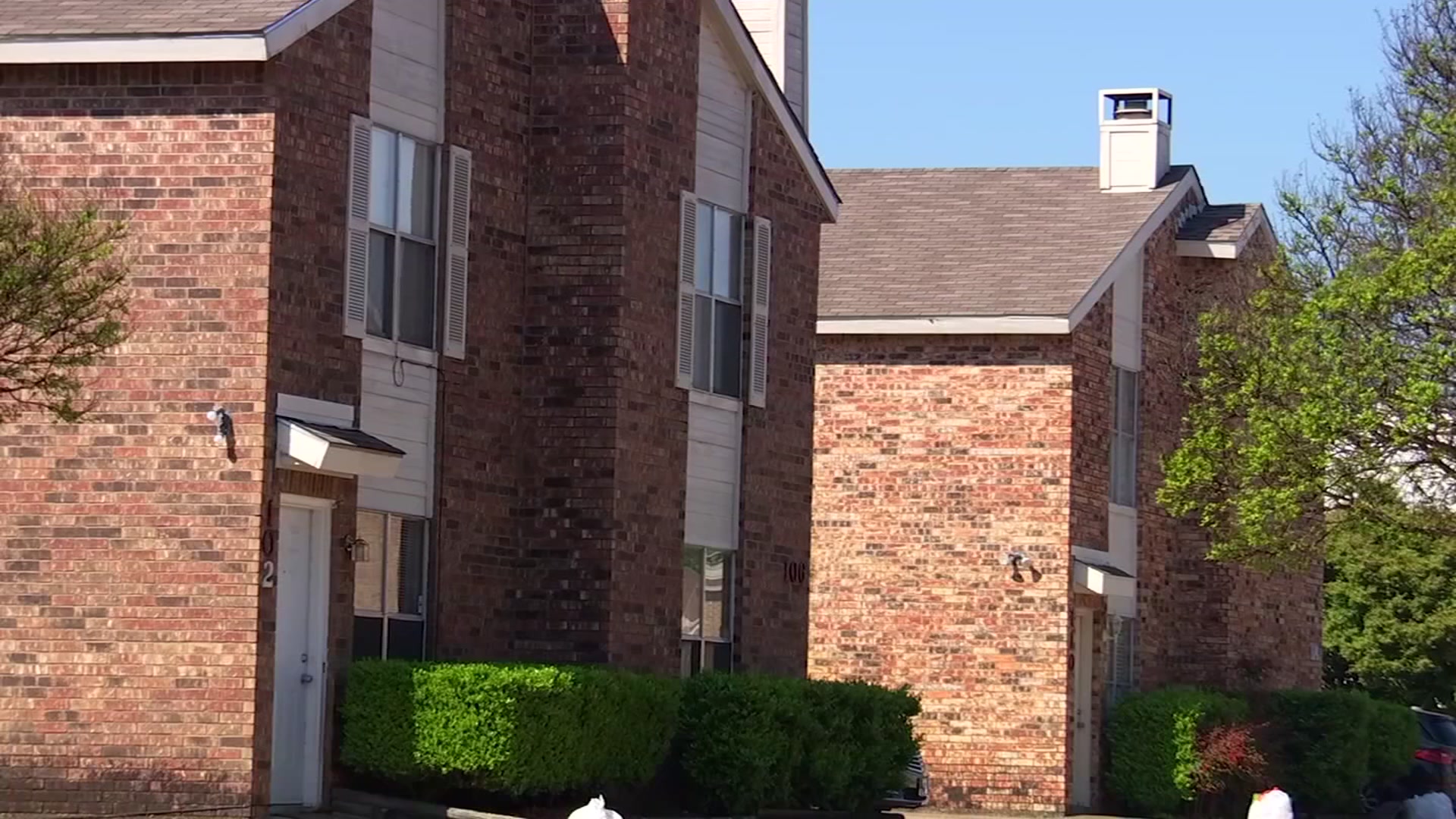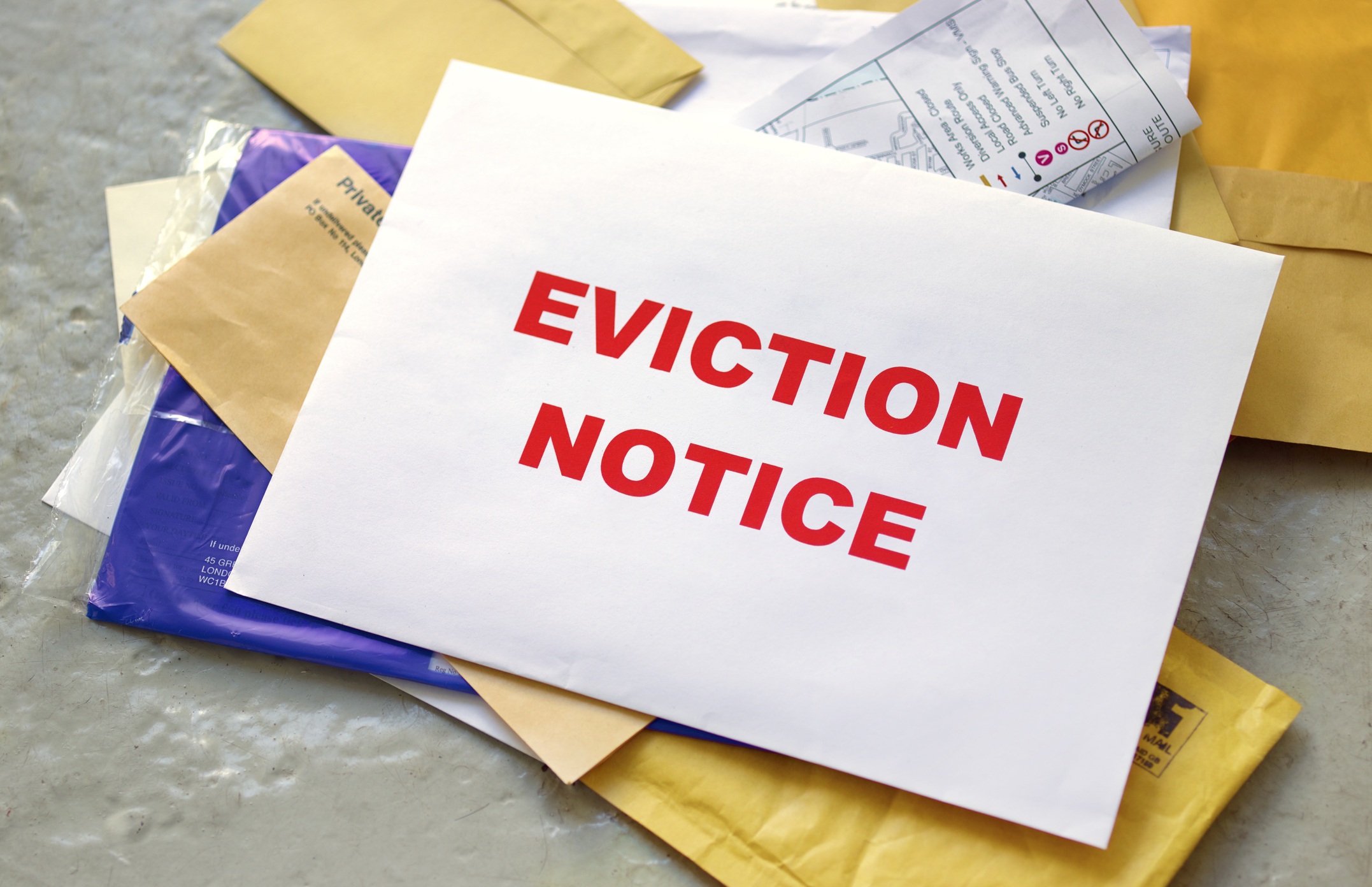A North Texas woman says she faces eviction after the Centers for Disease Control extended its eviction moratorium through June 30. It comes after the Texas Supreme Court did not extend its own emergency order which expired on March 31.
Christiane Daugherty of Carrollton said her eviction is moving forward after a judge issued an eviction order on Friday.
Daugherty said she and her adult son lost their jobs during the pandemic: she worked as a contractor in IT and her son worked in fine dining.
“We were not able to pay rent starting in October when unemployment benefits were drastically reduced,” said Daugherty.
Get DFW local news, weather forecasts and entertainment stories to your inbox. Sign up for NBC DFW newsletters.
Daugherty said she got a new job in February.
“Now, I’m earning enough to support us,” Daugherty said.
She told NBC 5 Responds she fears losing her home just as she was getting on better financial footing.
“The thought of being homeless; I work from home. I don't know how I would set things up to be able to continue my job,” Daugherty explained. “It would be tough.”
Texas Supreme Court order expires
Last Monday, the CDC announced it is extending an eviction moratorium for nonpayment of rent through June 30. The CDC put the eviction moratorium in place during the Trump administration last September. It has been extended three times.
Among the requirements, renters must sign a declaration saying they face homelessness because of the pandemic and attempt to secure rental assistance to pay their landlords.
The Texas Supreme Court issued its 34th Emergency Order which adopted the federal rules and added state rules. That order expired on March 31 and the Texas Supreme Court has not extended it.
Since then, the Texas Justice Court Training Center issued new guidance to Texas Justice of the Peace Courts saying they do not have to enforce the CDC order, but the courts can advise landlords they may face a federal penalty for moving forward with an eviction for nonpayment of rent while the CDC order is in place.
The guidance says the CDC order does not explicitly direct courts to enforce the moratorium. The guidance says, in part, “Instead, it directs landlords to not evict tenants that are covered by the moratorium. It also provides civil and criminal penalties for landlords who violate the moratorium, but that is a matter between the tenant, the landlord, and potentially a federal prosecutor."
In an email to NBC 5, Thea Whalen, Executive Director of the Texas Justice Court Training Center wrote, in part, "The CDC Order is clearly directed at the actions of a landlord with respect to pursuing certain eviction cases. Texas did have rules that implemented the CDC Order into the justice court procedures in eviction cases, but those rules are no longer in effect."
Whalen continued, "We are unaware of any state law that would continue to implement the Order. However, state and local authorities may impose their own moratoriums, and some have done so. We are not a rulemaking body; we exist only to inform the justice courts of the law and serve as a resource."
There is also federal case, challenging the constitutionality of the CDC’s eviction moratorium.
Legal aid groups concerned
“I'm very concerned that we're going to see thousands of people across the state of Texas become homeless as a result of this,” said Mark Melton – an attorney with a group of lawyers working with renters for free during the pandemic.
Melton points to new relief programs that have launched to help renters catch up on back rent. One program, administered by the state, began taking applications in February and pays rent directly to landlords.
Melton said the state needs more time to distribute the funding.
“Before we can even get that cash deployed, we're going to remove the protections so that people will be evicted before the money, which is just sitting there right now, is in the hands of the landlords. This doesn’t just bail out tenants, this bails out landlords as well. Everyone is going to lose as a result of this policy shift,” said Melton.
Legal aid groups across Texas have met virtually to discuss how the policy would impact eviction cases heard in JP court.
“If a tenant now files a CDC declaration, that JP judge is going to instruct the landlord that there is this moratorium going on, do you want to move forward knowing that you may face civil or criminal penalties?” explained K’Lisha Rutledge, an attorney with Legal Aid of Northwest Texas.
Rutledge said the new guidance shifts the decision about whether to proceed with an eviction for nonpayment of rent to the landlord.
“We're going to let you figure out what you want to do. Do you want to face a possible civil or criminal penalty and go forward? Or do you want to put the case on hold until after June 30 when the moratorium expires?” said Rutledge.
Landlords waiting for relief
When the CDC moratorium first took effect last September, landlords were concerned the federal order did not include any funding for landlords if their renters can’t pay.
Months into the moratorium, landlords are still, in many cases, waiting for rent relief and eviction deferment money to come through – said Ian Mattingly, president of the Apartment Association of Greater Dallas.
“We're struggling as rental housing owners and facing some very difficult situations and we're focused on trying to get those dollars where they're needed most as quickly as possible,” said Mattingly.
Mattingly said the portfolio of properties he helps manage has helped hundreds of tenants apply for rental assistance, but no money has been paid out yet.
“We're also very focused from an advocacy standpoint on ensuring the rental assistance that has been allocated in the millions and millions of dollars to help prevent people from being evicted throughout the State of Texas actually makes it into the hands of people who can stop those eviction processes,” said Mattingly.
Even so, he said his advice to members has remained constant during the pandemic.
“The approach that we're recommending is the one that we have always recommended: eviction is always a last resort. We are encouraging our members, as we have throughout this pandemic, to continue to work to the greatest extent possible with their residents, to keep them safe and healthy in their homes,” said Mattingly.
Rental assistance options
NBC 5 Responds requested the most recent data about housing assistance payments from the Texas Department of Housing and Community Affairs. The agency is working to distribute more than one billion dollars through the Texas Rent Relief program which began taking applications on February 15.
Landlords or renters can apply for assistance here.
Additionally, you can search 211texas.org. In the search box, type “rent assistance” and enter your zip code for a list of agencies to call.
Melton said his group, Dallas Evictions, is working to help connect renters to several state and local rental assistance programs.
Rutledge also says clients should push forward with applications for rental assistance and eviction diversion.
You can find information about the Texas Eviction Diversion program here.
If you need legal help, contact Legal Aid of Northwest Texas or Dallas Evictions.
A little more time
Melton said an attorney is filing an appeal in Daugherty’s eviction case on Monday.
Daugherty said she isn’t sure what she would do if she is evicted from her apartment. Daugherty said she hopes to have a little more time to line up rental assistance and work to pay off the debt she owes her landlord.
“Just a little bit more time. I know there's a lot of people out there who are suffering far worse than we are. There are no apartments to rent. If they evict us, there's nowhere,” said Daugherty.
NBC 5 Responds is committed to researching your concerns and recovering your money. Our goal is to get you answers and, if possible, solutions and a resolution. Call us at 844-5RESPND (844-573-7763) or fill out our customer complaint form.
Get DFW local news, weather forecasts and entertainment stories to your inbox. Sign up for NBC DFW newsletters.



